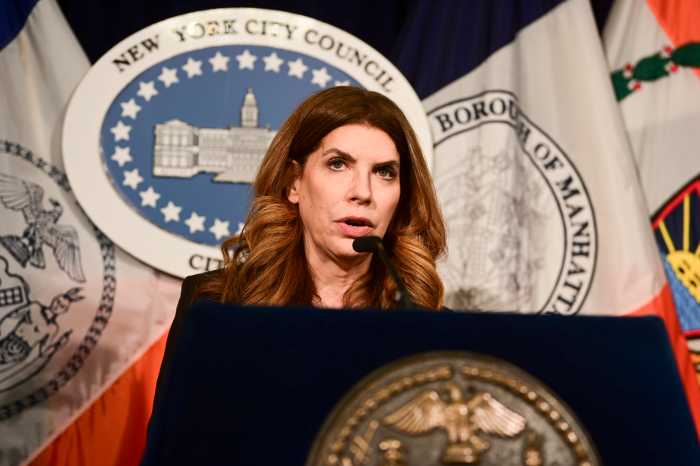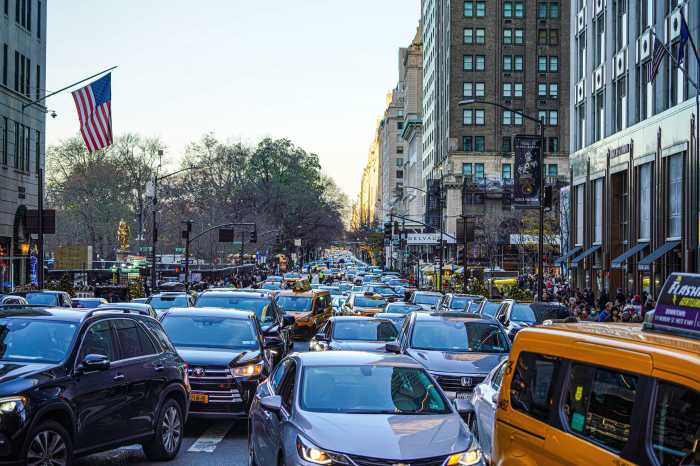Every New Yorker feels it: the sting at the checkout line, as once-affordable basics like eggs, milk, and bread now cost more than ever––climbing by 9% on average in the past year alone. The price of groceries in our city is rising at one of the fastest rates in the nation, and these increases hit working families the hardest.
But as New Yorkers grapple with these rising costs, one politician has pushed a “solution” that would only make matters worse. Socialist assembly member and mayoral candidate Zohran Mamdani’s proposal ––to open a network of city-owned-and-operated grocery stores across the five boroughs––is misguided and harmful to the very communities it claims to help.
Inspired by failed experiments in other cities (in particular, a plan in Chicago that never got off the ground), Mamdani’s plan is based on the idea that government-run stores—freed from rent and property taxes— keep prices artificially low for consumers.
If the assemblymember had reached out to us before espousing this idea, we would have told him that his plan would ironically make grocery shopping across all five boroughs less affordable.
Subsidized with millions of our taxpayer dollars, Mamdani claims that government-owned and operated stores would be relieved of the requirement to pay rent and taxes like every other store in the city; instead of helping the industry, this policy threatens the survival of neighborhood grocery stores.
Industry leaders and community advocates have rightly called this a “Soviet-style” approach, that would have predictably negative effects. Combine that with the city’s dubious track record in managing traditionally private services, and the high cost to taxpayers who would foot the bill for this experiment, you have a perfect storm that could simultaneously drive independent grocers out of business while providing inferior service to customers.
When local supermarkets close, jobs disappear and communities lose vital anchors. And with fewer stores – prices will go up.
Fortunately, there are very real and practical solutions to address the real drivers of high grocery prices and that will support consumers and the small businesses that serve them.
Independent supermarkets in New York City are fighting for survival on three main fronts: rising commercial rents, skyrocketing insurance & utility and overregulation. Many stores operate on razor-thin margins and cannot absorb these increases, leading to closures and vacant storefronts. At the National Supermarket Association, representing over 600 independent stores and more than 15,000 employees citywide, we hear from owners every day who are struggling to keep their doors open.
As a first step, the government can streamline or reduce onerous regulations and red tape that makes it harder and more expensive to operate a supermarket. From new environmental rules requiring costly refrigeration upgrades, to layers of red tape and compliance mandates, independent grocers are facing higher costs and drowning in paperwork and fees. A comprehensive review of city regulations would identify outdated or duplicative rules that drive up costs without improving safety or quality.
Additionally, cracking down on unlicensed vendors, operating without permits, would level the playing field and protect both consumers and store owners. These unlicensed vendors undercut legitimate businesses that play by the rules and discourage foot traffic to the stores.
The City should also explore the creation of a structured commercial rent relief program, with a targeted approach that can be applied to supermarket space, so that not only the landlord benefits, but the commercial tenant as well.
Lastly, the government must also take steps to relieve this industry of soaring insurance premiums caused by a flood of frivolous litigation. At the very least, supermarkets should be held to an equal standard as the City with respect to the timeline for bringing claims. The same holds true for utilities; costs are increasing at an unsustainable rate. Any future mayor would be wise to address these concerns.
All of these are realistic solutions and could make a difference immediately. If implemented, these would help keep small grocery businesses afloat, and ultimately make groceries both more accessible and affordable.
While the city government is limited in its ability to change prevailing macroeconomic conditions, such as regulating tariffs and global supply chains, it can do a lot locally to make groceries less expensive without resorting to plainly bad ideas.
One thing is for certain: city-run supermarkets are not the solution. They threaten to destroy the very ecosystem that makes New York’s food landscape vibrant and diverse.
Instead, let’s work together-business owners, policymakers, and community leaders-to enact real reforms that lower costs, protect jobs, and keep our neighborhoods strong.
New Yorkers deserve choices, affordability, and thriving local businesses. Let’s use common sense, not a socialist sledgehammer, to get there.
Nelson Eusebio is Director of Government Relations for the National Supermarket Association.






































